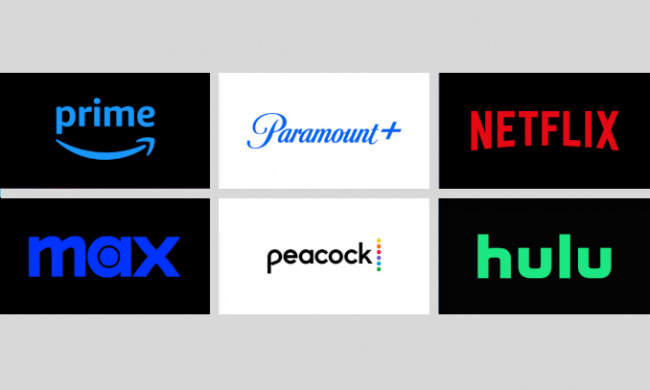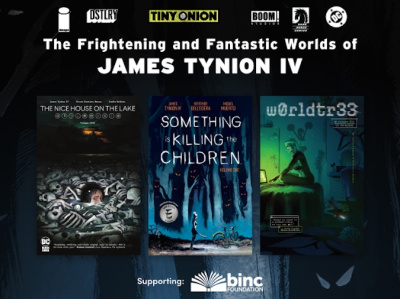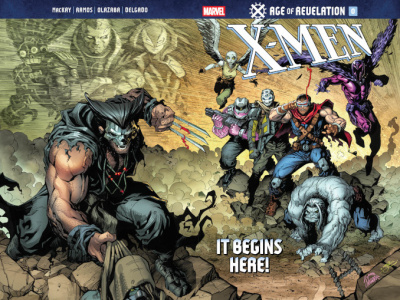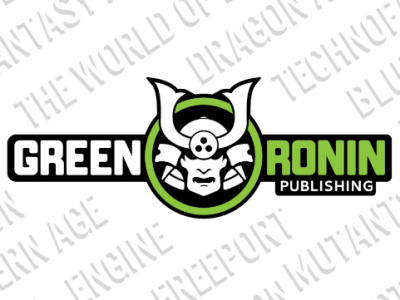FOMO (Fear of Missing Out) is one of the driving forces of fandom: the nagging fear that even if something doesn’t immediately appeal, everyone else will end up liking it and you will regret sitting on the sidelines. It’s one thing when FOMO triggers feeding frenzies among fans and collectors, but it’s a different story when it affects business leaders who control millions or billions of dollars of spending.
There’s a branch of strategy called "game theory" (good name for a prestige limited comics series!), showing how scenarios play out when competitors based their decisions on the expected actions of competitors: the very definition of the FOMO mindset. The most common outcome is the "suboptimal" case of everyone losing. Anyone acting individually to avoid social harm risks the worst outcome, which is losing when your competitor wins. If this sounds a bit abstract, bear with me for a few hundred words…
Streaming wars endgame is at hand. For the last decade, give or take, a lot of decisions in the entertainment, publishing and tech industries seem to have been driven more by FOMO than by fundamentals. People who should have known better overspent on speculative concepts and technologies, crowding the market with lookalike products, and are now feeling the hurt as consumers shrug their shoulders.
The streaming wars are the poster child for this phenomenon. The studios and streamers vastly overinvested in content not because they expected those investments to pay off, but because they were afraid if they didn’t, someone else would.
Customers did show up, but not in the volume or value required to cover the costs. We are now into the shakeout, where the weak will perish and the strong will change the deal to make it much less attractive for everyone (note the rising rates and increasing presence of once-banned commercial spots).
Just look what’s going on. Netflix, benefiting from first mover advantage and a sound business plan, is doing fine, but slowly enshitifying. Ditto Amazon. Disney recently touted that Disney+ and its siblings are modestly profitable (when excluding the albatross of ESPN). Max appears to have made some money as well. Paramount looks like it’s going to sell itself to Skydance, which hopefully bodes well for the various crews of the Enterprise. Peacock considers it a triumph to only lose $639M last quarter as its corporate parent, Comcast, scrambles to rebundle streamers into facsimiles of the old cable plans, which at least had the virtue of simplicity.
Only Sony realized the best way to win was not to play, at least not at scale: its Crunchyroll specialty anime streaming service, acquired in a fire sale from Warner Media in the bad old AT&T era, is now "leading global growth" according to the company. It did so, notably, by following the old-school strategy of appealing to a deep niche market rather than trying to be all things to all people.
Not coincidentally, manga, whose success is closely bound with the popularity of anime, is on the upswing. Other streamer-dependent comics content? Not so much.
Collateral damage. We can all count the investor-backed or vanity project comic publishers that started up or relaunched in the past 10 years based on the prospect of having titles optioned, and potentially developed, into titles to feed the insatiable streaming beast. This was the business plan that drove a lot of new money into comics publishing from 2015 onwards.
These newcomers recognized that streaming platforms were looking for marketable genre-adjacent content (thrillers, high-concept SF, politically intriguing fantasy, postapocalyptic horror, etc.), and so we’ve seen a ton of these hit the shelves in that timeframe. A lot of these comics look and feel generic, notwithstanding the talent involved in many of the specific projects, and they are all crowded into that tiny niche of adult periodical readers not exclusively interested in superheroes. Once again, unsustainable based on the fundamentals.
I don’t blame anyone for jumping on this bandwagon. For a while, there was real money being thrown around, and creators and publishers would have been crazy to not cash in. But the problem with things that are unsustainable is that… they are unsustainable.
Consequently, a bunch of creators, publishers and platforms that made a side bet on the long-term health of the streaming economy are now having to survive by their wits alone, in an increasingly shaky and competitive direct market. Some are better at it than others.
The next FOMO wave: AI. Fast on the heels of streaming FOMO is the even bigger bonanza of AI. This is too big a topic to tackle in a portion of a column, but I would call your attention to one manifestation of the problem. Microsoft, of all companies, got enough of a drop on its competitors to emerge as a leader in the integration of generative AI into its product stack. This has caused a FOMO pileup among the likes of Alphabet, Amazon and Meta to out-AI each other by hoovering up every loose scrap of data and rolling every half-baked application out the door the minute the code is dry. Never mind if consumers want or need any of it.
In Google’s case, we’re seeing AI-summarized content floating to the top of search results, displacing the familiar list of links to original material. The most obvious problem with these results is that they are unreliable (glue on pizza, anyone?), as if Google had run all its search data through a blender and then added a dash of mercury just for giggles. Even if it’s 99.99% reliable, if you don’t know which 0.01% if phony, you’re not winning.
But the bigger business problem for publishers, especially online publishers, is that those links are how you make money. If Google and Meta’s Facebook and Instagram are no longer referring traffic, the ad money goes away. Publishers can’t pay contributors, so content dries up, presumably replaced by robot-generated pablum, which is the endgame the tech folks envision for everything: "Hey ChatGPT, write me a story pitch for a 6-issue comics miniseries on a time-traveling superspy with a traumatic backstory, fighting zombies in a Byzantine medieval kingdom."
Back to basics. Sorry for another downer of a column, but I do want to end on a positive note. First, whether its sustainable or not, the flow of dollars from plutocratic tech companies, global entertainment conglomerates and skittish VCs to creators lower down on the food chain is as close to socialist redistribution as we’re likely to get in the 21st century economy, so get while the getting is good and don’t feel bad about it. Just recognize that nothing lasts forever and plan accordingly.
Second, disenchantment with faddish overinvestment is accelerating. Most people who are starting to notice AI encroachment don’t like it much. The collapse or consolidation of overextended models creates openings for the authentic and nimble. Note, for example, the rapid rise of the art-oriented AI-free Instagram alternative Cara, which vaulted into the top 5 downloads in its category this weekend. Niche streamers like Crunchyroll and the Criterion Channel are gaining while others are losing.
Keep your eyes on the fun, personal, authentic ground-level stuff you love and you’ll never have to worry about missing out.
Rob Salkowitz has received two Eisner Award nominations for his coverage of the industry in ICv2, Forbes and Publishers Weekly. He is the author of Comic-Con and the Business of Pop Culture and teaches at the University of Washington.

Column by Rob Salkowitz
Posted by Rob Salkowitz on June 3, 2024 @ 5:00 pm CT
MORE COMICS
From Tiny Onion, Dynamite, Image, IDW
July 18, 2025
There are four Humble Bundle deals running right now, from Tiny Onion, Dynamite, Image, and IDW.
From Marvel Comics
July 18, 2025
Age of Revelation, a new status quo taking place 10 years into the future and arising out of current developments in the X-Men titles, begins in October.
MORE COLUMNS
Column by Rob Salkowitz
July 14, 2025
Superman isn't a character who needs a general introduction to the broader public; he just needs an existing global fanbase to take a fresh look.
Column by Scott Thorne
July 14, 2025
This week, columnist Scott Thorne discusses Green Ronin Publishing's GoFundMe to fund its legal fight against Diamond Comic Distributors, and the soft preorders for the latest Horus Heresy box.








